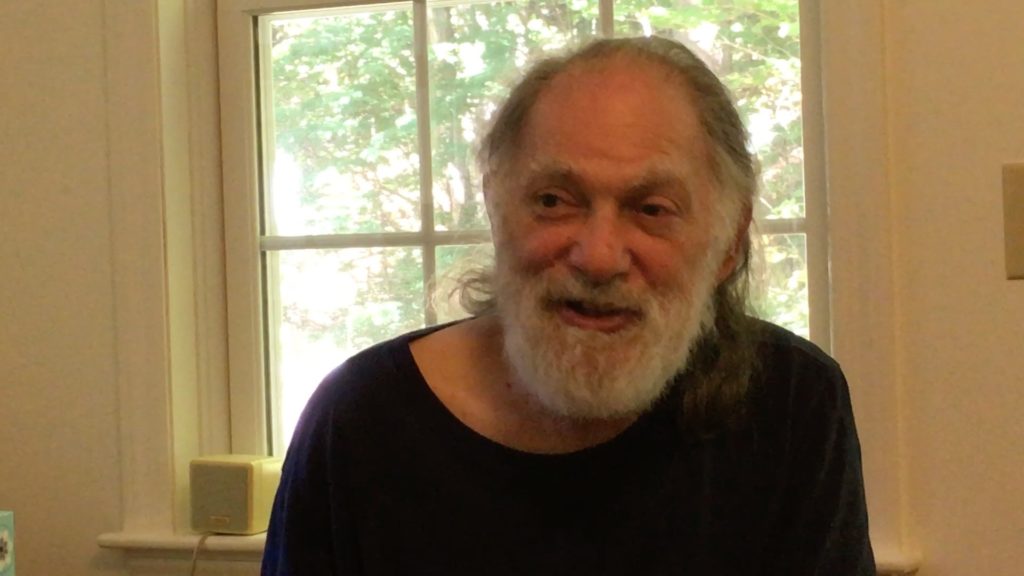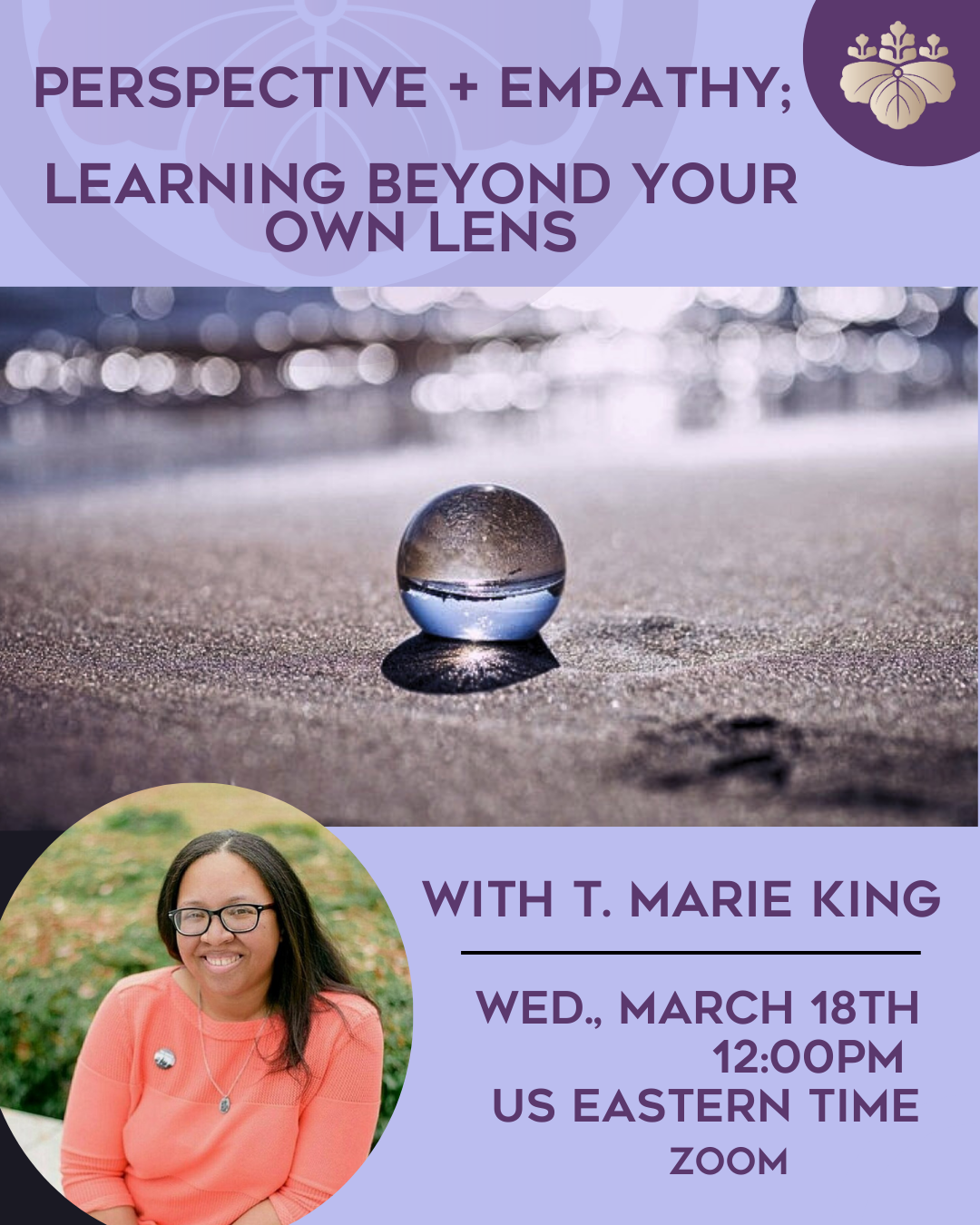Bernie Glassman, after eight months of post-stroke recovery, is determined to attend the upcoming retreat in Poland in October 2016. In two conversations, one in a video and another at the written interview below, he explains his motivation.
Bernie: Since the stroke, I have been mainly focusing on getting my mind and body back in shape. Not too long ago, it struck me that as I am right now—in terms I can walk, I’m still with a cane—I’m ready not just focusing on getting myself better, I’m ready to look out.
And of course during this whole time I’ve had a lot of meditation, and a lot of space in which I could peer at things. But somehow the idea of Auschwitz came up, and I want to be there. I want to be there for the next retreat.
And what also came up is Marian. Everybody who goes to Auschwitz goes one night to see Marian’s work, and hear his story. And that’s been happening since pretty much the beginning. He died a few years ago. But people still get to see his work, and hear his story. But for me the importance of his story—and it is amazing, I loved the man, amazing person . . . But what struck me, I think from the first time I met him—which I believe was the second retreat that we met him—was that I noticed that he wasn’t showing anger, or hatred. And he said, “How can you hate anybody? I have not hatred for any of the Capos, or Nazis. I don’t have hate for anybody.”
Now for most people—and you have to remember that that’s why I started the Auschwitz Retreat, to learn how we can live with others without hate, without anger. Here was a man living that way. I hadn’t met people doing that. Everybody has somebody that they hate, they dislike. And in my relationship with him, he never showed me that side.
So it was very important for me. And then he died. And a couple of years have passed. And I went through my stroke to remember this path that he had started in Auschwitz started fifty years after he was released from Auschwitz. And it was started because of a stroke that he had. And a stroke brought him back to Auschwitz where he, in using his words, “drew his bearing witness to those years.” And out of that bearing witness we see the horror that we see. He did not have any hate out of it.
OK, so many years, twenty-five years have passed since I wanted to do this retreat. And what’s so important for me again, is the idea of how do we treat others. And I feel that my going back—and I want to go back to Auschwitz—one of the important things that I want to do is continue the work of Marian.
The idea of having a retreat to help us realize how hard it is to honor everyone, how we have so many hatreds that linger. But after the first retreat I met a man who was living that.
So my going back now is to continue his legacy. Maybe we could say it’s to continue the legacy of Marian and of Bernie, the both of us.
Rami: So I hear you relate to Marian, and the story of his stroke, and what the stroke made available to him. What do you see now in common, that you have with Marian?
Bernie: The ability to not hate. It’s that simple. If you look at it, it’s completely different lives and trajectories. But the one thing we share I think is the ability to not hate. I certainly felt that in him. And I feel that in me. And it’s pretty rare.
It’s interesting, so many people told me—including the varied occupational therapists, the physical therapists—mentioned to me that they haven’t heard me blaming someone for the stroke, hating what’s . . . Yeah, it’s the same thing.
What’s the point of blaming, and criticizing? And look at what it does to the life of the people. They get so caught up with hatred and anger; instead of accepting what is . . . It’s such a simple story.
For me, Zen preaches the same thing—being here, now. If I take away all the past, and all those things—where is the anger? I’m here, now. And so the question now is, what do we do? What do I do now? It’s not who do I blame? That’s not the question. The question is what do we do now? That’s where we start. Here it’s a clean slate.
Rami: So what is there?
Bernie: For me, at this point, that word is love. There’s something the stroke is doing to me – feelings and emotions are vivid to me. You could see the love Marian had for his wife. I did not know him before the stroke. I’m curious if this all grew out of his stroke the same it did from mine, or was this part of who he was before? In my sense a lot has to be from the stroke because he hid for fifty years the fact that he was at Auschwitz. If he was open and free, he wouldn’t have to be hiding it that time. So he was trying to be away from that. And I didn’t know then— but I know ‘post-stroke’ because I feel more.
So if you’re thinking about coming to Auschwitz, please come. And I would like to address you all at the opening evening. And then based on how much energy I have I’ll meet you on the following days.
Interview Transcribed by Scott Harris



9 Responses
Bernie, I have acquired a parchment on wood of “Desiderata”, signed by “Paul Glasmann, 1969” Should you be further interested in the particulars of this please contact me via email. kind regards,
Such lovely words. “And what’s so important for me again, is the idea of how do we treat others”
So wonderful when honoring and loving others becomes the reason for our actions.
Thank you.
Bernie…It took almost a lifetime for me to return to Auschwitz/Birkenau(2001).I feel such a pull to go again and would love to be there with you and Zen Peace.Health and other things prohibit that now but maybe again.Meanwhile,I want you to know how moved I was by your desire to return post-stroke.I fully understand and will at least be with you there in spirit.Your love,dedication and inspiration is palpable.THANK YOU!
(..”VENGEANCE IS A LAZY FORM OF GRIEVING.”(African tribal saying)
Dearest Bernie, I’m so moved by your words, your courage and your love. That’s what I experienced in Auschwitz that only true, unconditional love can heal our wounds, liberate us and bond us together…
and also thanks to you I grasped this:
“when I completely re-member there is no gap left, just life!”
thank you Bernie and Eve for this beautiful conversation
OK Jose. So much loving kindness. Deepest thanks, Bernie, to you for who you are. It’s simple. (And not so simple.) Honoring Marian’s journey and example. His inspiration. Honoring us with your effort to travel there, to wish to welcome us ALL to Auschwitz to learn and see and feel and be, together. Bearing witness to ourselves, in that place, together. The heart of the hub. In gratitude and love.
Reading that you go back to Auschwitz after the stroke and in a way with the stroke touches me lot. How great! What a loving and strong person you are, with such a big mind and heart. And – may I say – also really crazy. Sending a lot of love to you.
Such a bright light, that continues to shine with love.
Dear Bernie,
I am much moved by your letter to us, testifying to the deep legacy between you and Marian, or Marian and you.
I also feel moved that you want to return this year, and by the meaning of the stroke it had for Marian, for you. You are giving this meaning to your stroke. The people who already have been at Auschwitz know which meaning the stroke had for Marian. Feeling, remembering, expressing, becoming whole again, by much, much working, painting.
It makes me really happy to hear that, I don’t know why.
Perhaps I think that it makes you happy, to not only feel connected to your friend by the stroke and not hating, but also to feel close again at Birkenau and the museum with his stunning drawings.
Yes, glad that you cannot hate. Glad that you go. Glad that I hate less and less. At the moment I even don’t know whom I would hate, perhaps I don’t. I am still getting angry, but considerably less. Also less with myself. Isn’t this a condition for peace of mind?
If I could I would join you. I don’t think I can make it.
As a friend said to me, “I never have left Auschwitz”, this is true for myself, as well. I am always there. And when I am there, you are there, and Marian, whom I pretty much admire, is also there.
Glad that you have recovered, so far.
Thank you for everything, which is really much, much. My life is not more the same than before I came across your book and then, before I went for the first time to Auschwitz.
Every single visit there, since 2010, is carrying a jewel in it’s center.
Wit love and gassho:
Monika Jion
Thanks, Bernie